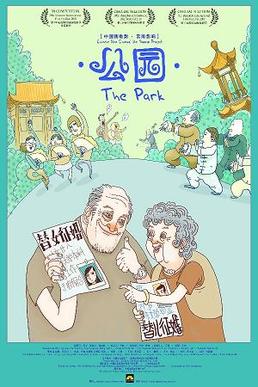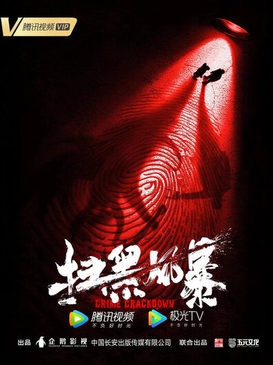
Yunnan, is a landlocked province in the southwest of the People's Republic of China. The province spans approximately 394,000 km2 (152,000 sq mi) and has a population of 48.3 million. The capital of the province is Kunming. The province borders the Chinese provinces of Guizhou, Sichuan, autonomous regions of Guangxi, and Tibet as well as Southeast Asian countries: Vietnam, Laos, and Myanmar. Yunnan is China's fourth least developed province based on disposable income per capita in 2014.

The Nakhi or Nashi are an East Asian ethnic group inhabiting the foothills of the Himalayas in the northwestern part of Yunnan Province, as well as the southwestern part of Sichuan Province in China.

Jia Zhangke is a Chinese-language film and television director, screenwriter, producer, actor and writer. He is the dean of the Shanxi Film Academy of Shanxi Media College and the dean of the Vancouver Film Academy of Shanghai University. He graduated from the Literature Department of Beijing Film Academy. He is generally regarded as a leading figure of the "Sixth Generation" movement of Chinese cinema, a group that also includes such figures as Wang Xiaoshuai, Lou Ye, Wang Quan'an and Zhang Yuan.

Still Life is a 2006 Chinese film directed by Jia Zhangke. Shot in the old village of Fengjie, a small town on the Yangtze River which is slowly being destroyed by the building of the Three Gorges Dam, Still Life tells the story of two people in search of their spouses. Still Life is a co-production between the Shanghai Film Studio and Xstream Pictures.
Betty Pei Ti is a Taiwanese actress. Though born in Taiwan, she is best known for her roles in Hong Kong films, particularly of the Shaw Brothers Studio.

Unknown Pleasures is a 2002 Chinese film directed by Jia Zhangke, starring Wu Qiong, Zhao Weiwei and Zhao Tao as three disaffected youths living in Datong in 2001, part of the new "Birth Control" generation. Fed on a steady diet of popular culture, both Western and Chinese, the characters of Unknown Pleasures represent a new breed in the People's Republic of China, one detached from reality through the screen of media and the internet.

The Prince of Han Dynasty is a three-season Chinese television series featuring a fictionalised life story of Liu Che, Emperor Wu of the Han Dynasty. Season 1 was first broadcast on Beijing Television in 2001 in mainland China, followed by the second and third seasons in 2003 and 2005 respectively. Except for Huang Xiaoming, who played Emperor Wu in all three seasons, the cast members in each season are almost different from its preceding one.

The People's Republic of China's first reported AIDS case was identified in 1985 in a dying tourist. In 1989, the first indigenous cases were reported as an outbreak in 146 infected heroin users in Yunnan province, near China's southwest border.

Lunar Eclipse is a 1999 Chinese film and the directorial debut from Sixth Generation director Wang Quan'an. It is also the feature film debut of Wang's most frequent collaborator/muse Yu Nan. Unlike his next two films, which focus on rural communities, Lunar Eclipse is an urban drama following the wife of a newlywed couple who becomes mesmerized by an amateur photographer who claims to have once been in love with a woman who looked just like her. The film was produced by the Beijing Film Studio.

The Park is the 2007 directorial debut of Chinese writer-director Yin Lichuan. Produced by Filmblog Media and Beijing Wide Angle Lens, the comedy-drama film is part of producer Lola Zhang's Yunnan New Film Project, ten proposed films by female Chinese directors. The Park is the second of the ten to be released, after Wang Fen's The Case (2007). Each of the films was required to take place in the southern province of Yunnan.

The Orphan of Anyang is a 2001 Chinese film from Sixth Generation writer-director Wang Chao. It is Wang's first feature film as director, and is based on a novel written by the director. The film constitutes the first part of a loose trilogy on life in modern China, followed by Day and Night (2004), and Luxury Car (2006). The film was produced by the independent Beijing-based Laurel Films, founded by screenwriter Fang Li. International distribution was by the French company Onoma.

Dayan, commonly called the Old Town of Lijiang is the historical center of Lijiang City, in Yunnan, China. It is a UNESCO World Heritage Site.
He Jianjun is a Chinese film director and screenwriter. A graduate of the Beijing Film Academy, He is considered a leading voice in the so-called "Sixth Generation." He is occasionally credited under the name "He Yi."
Wang Hongwei is a Chinese actor. Wang is perhaps best known for his work with director Jia Zhangke. The two men were classmates at the Beijing Film Academy when they began their professional relationship, with Wang starring in Jia's breakthrough short film Xiao Shan Going Home in 1995. Since then, Wang has had roles in nearly all of Jia's films, including starring roles in Jia's debut Xiao Wu and follow-up, Platform.

L'Est Films Group Int’l Co (EFG) is an entertainment industry company involved in movie distribution and production.
The following lists events from 1996 in China.

Yunnan Flying Tigers Football Club is a professional Chinese football club based in Lijiang, Yunnan and their home stadium is the Lijiang Sports Development Centre Stadium that has a seating capacity of 22,400. The club's current major investors are the Kunming Minjian Mechanical & Electrical Equipment Limited Company along with Lijiang Materials Co. Ltd. and Lijiang Lijiang Taihe Group.
Wang Junzheng is a Chinese politician, serving Communist Party Secretary of Tibet since 18 October 2021. He was head of the Political and Legal Affairs Commission of Xinjiang. Between 2016 and 2019, he was the Communist Party Secretary of Changchun. Prior to his position in Changchun, he served in a variety of posts, as vice-governor of Hubei, the Party Secretary of Xiangyang, and the mayor and party chief of Lijiang.

Crime Crackdown is a 2021 Chinese crime drama series written by Du Liang and directed by Wu Bai, and starring Sun Honglei, Lay Zhang and Liu Yijun. Based on several real-life cases that shook China in the 2010s, the series picks up a national anti-gang supervising group and local police officers as they take on gangs and the corrupt officials that offer these illegal groups a "protective umbrella". The series premiered on Dragon Television and Beijing TV on 9 August 2021.

American Girl is a 2021 Taiwanese drama film directed as the debut feature by Fiona Roan Feng-i. It depicts the semi-autobiographical story of Fen Liang, who returns to Taiwan from the United States with her mother and younger sister after their mother is diagnosed with breast cancer, during the 2002–2004 SARS outbreak. The film is executive produced by acclaimed director Tom Shu-Yu Lin, and is now exclusively available in over 190 countries and territories on Netflix.















